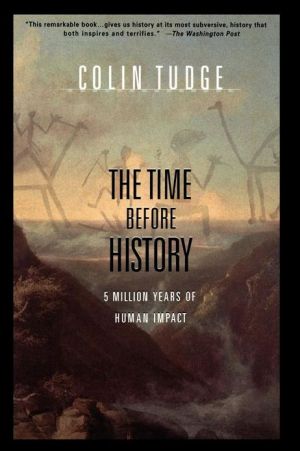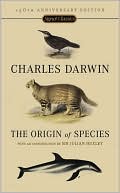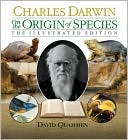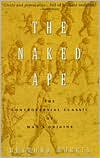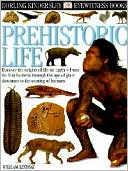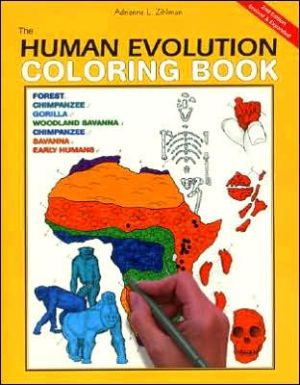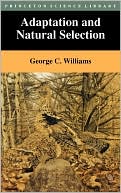The Time Before History
In this lyrical and engaging exploration, Colin Tudge undertakes an ambitious task: to place the narratives of human and planetary coevolution within the same frame, to expand our perspective on our own history, and to tell the story of the human impact on planet Earth. Our sense of history, the author argues, has become so truncated that it is measured in months and years, occasionally decades, infrequently centuries. The Time Before History is a corrective, a record of the preface to modern...
Search in google:
In this lyrical and engaging exploration, Colin Tudge undertakes an ambitious task: to place the narratives of human and planetary coevolution within the same frame, to expand our perspective on our own history, and to tell the story of the human impact on planet Earth. Our sense of history, the author argues, has become so truncated that it is measured in months and years, occasionally decades, infrequently centuries. The Time Before History is a corrective, a record of the preface to modern life - of the period known as the Plio/Pleistocene, from 5 million years past to the birth of civilization some 10,000 years ago. Tudge paints a broad canvas of our last 5 million years with fascinating descriptions of the waxing and waning of species and populations because of climate changes and plate tectonics, including massive migrations around the planet; the fabulous animals that covered the earth when our ancestors first emerged; the unique and exquisitely destructive characteristics of the first neo-apes, from their ability to exploit the savanna while living safely in the trees to the advantages of the rotating shoulder joint, which permitted missile throwing and thus changed the risk-reward balance of hunting forever. Drawing upon the disciplines of geology, anthropology, archaeology, earth science, and climatology, the Time Before History is the first popular account of this critical period and is a truly original contribution to the intertwined narratives of humanity and its planet. Publishers Weekly With majestic sweep and subtle wit, British science writer Tudge brings an astonishing perspective to the story of humanity by telescoping three intertwined dramas: the past 40,000 years, in which Homo sapiens truly got into its stride, set against the five-million-year history of hominids, set against the 3.5 billion years of life preceding the hominids' arrival. Tudge views primates (lemurs, monkeys, apes, humans) as a ``fifth column,'' creeping up on other creatures over an 80-million-year period, rarely dominating but ultimately producing a lineage that evolved into us. He favors the multi-migration model of the ``Out of Africa'' hypothesis, which holds that Homo ergaster, not Homo erectus, evolved to produce modern Homo sapiens. Drawing on the latest research, he discusses the five mass extinctions that interrupted life on Earth; the drift of continents; the Tibetan plateau as the planet's principal cooling mechanism; the growth of our ``all-purpose'' brain and its invention of language. Tudge concludes by scanning the next million years, with emphasis on devising sustainable economies, conserving species and feeding the world's population. His eloquent, immensely rewarding synthesis fosters a new appreciation of the interdependence of our fragile biosphere. BOMC, QPB, History Book Club and Library of Science alternates. (Feb.)
\ Publishers Weekly\ - Publisher's Weekly\ With majestic sweep and subtle wit, British science writer Tudge brings an astonishing perspective to the story of humanity by telescoping three intertwined dramas: the past 40,000 years, in which Homo sapiens truly got into its stride, set against the five-million-year history of hominids, set against the 3.5 billion years of life preceding the hominids' arrival. Tudge views primates (lemurs, monkeys, apes, humans) as a ``fifth column,'' creeping up on other creatures over an 80-million-year period, rarely dominating but ultimately producing a lineage that evolved into us. He favors the multi-migration model of the ``Out of Africa'' hypothesis, which holds that Homo ergaster, not Homo erectus, evolved to produce modern Homo sapiens. Drawing on the latest research, he discusses the five mass extinctions that interrupted life on Earth; the drift of continents; the Tibetan plateau as the planet's principal cooling mechanism; the growth of our ``all-purpose'' brain and its invention of language. Tudge concludes by scanning the next million years, with emphasis on devising sustainable economies, conserving species and feeding the world's population. His eloquent, immensely rewarding synthesis fosters a new appreciation of the interdependence of our fragile biosphere. BOMC, QPB, History Book Club and Library of Science alternates. (Feb.)\ \ \ \ \ Library JournalNearly everyone thinks of human history as covering the past 2000 years. Yet, this conventional time period only tells us about the specific activities of human beings after they already controlled the world and mastered its other species; it does not tell us about the changing nature of plate tectonics and their impact on species evolution; it does not encompass the significance of how we separated from other animals in our own evolutionary development, nor of the tremendous impact we have had on our environment and other species. Science writer Tudge (The Engineer in the Garden: Genes and Genetics, LJ 2/15/95) begins by putting time into perspective so that we can understand how vast is our past; he helps us see that all evolution is part of a bigger whole-an unfolding process affected by shifting continents, climactic changes, and our own impact on the planet and its ecosystems. He presents an exceptional account of human evolution in a concise yet original manner. He defines our origins in a biological, as well as historical, context and applies the lessons that we should learn from our mistakes as well as our achievements to provide a blueprint for the future. Highly recommended for most libraries.-Gloria Maxwell, Kansas City P.L., Kan.\ \
